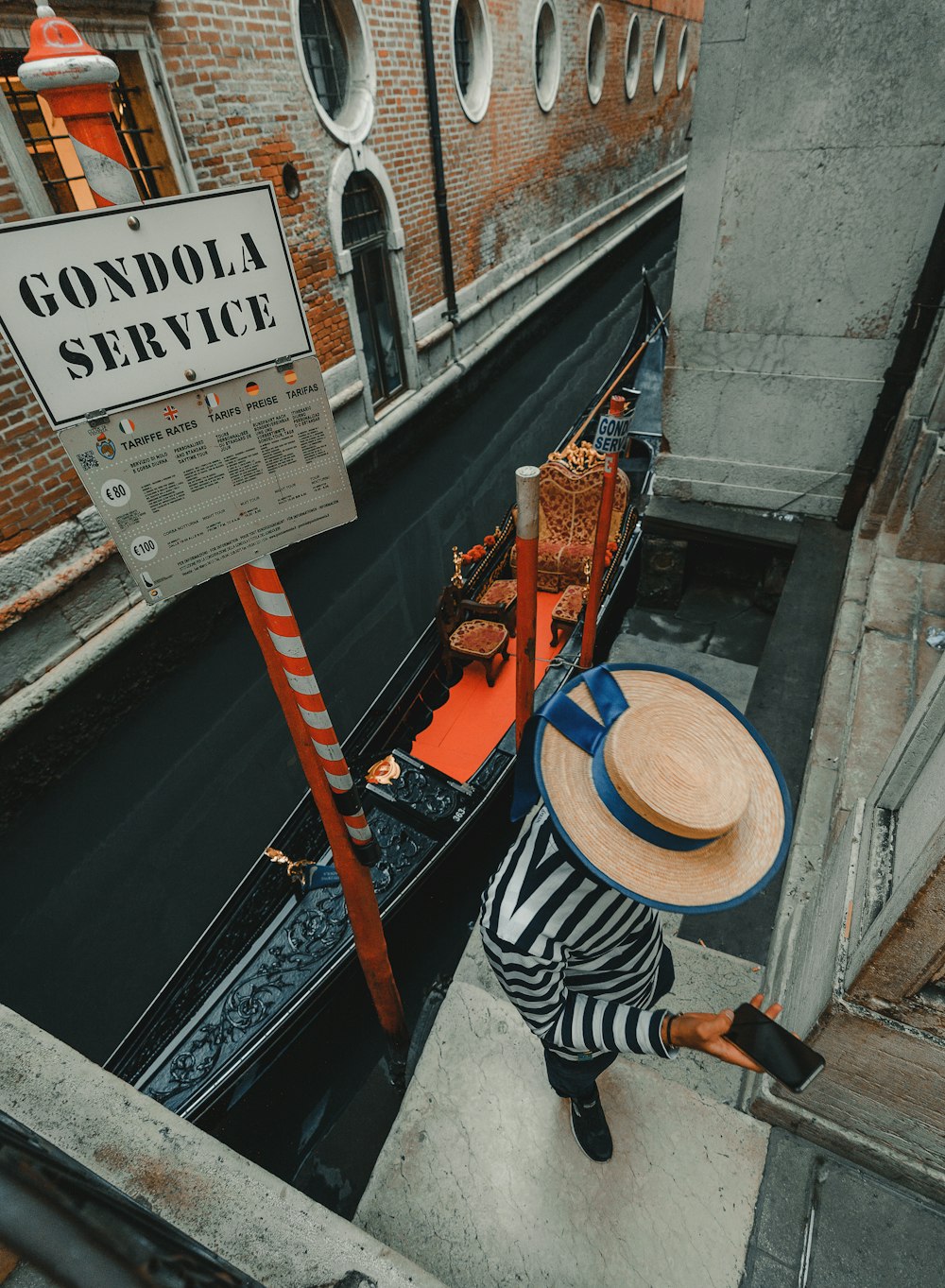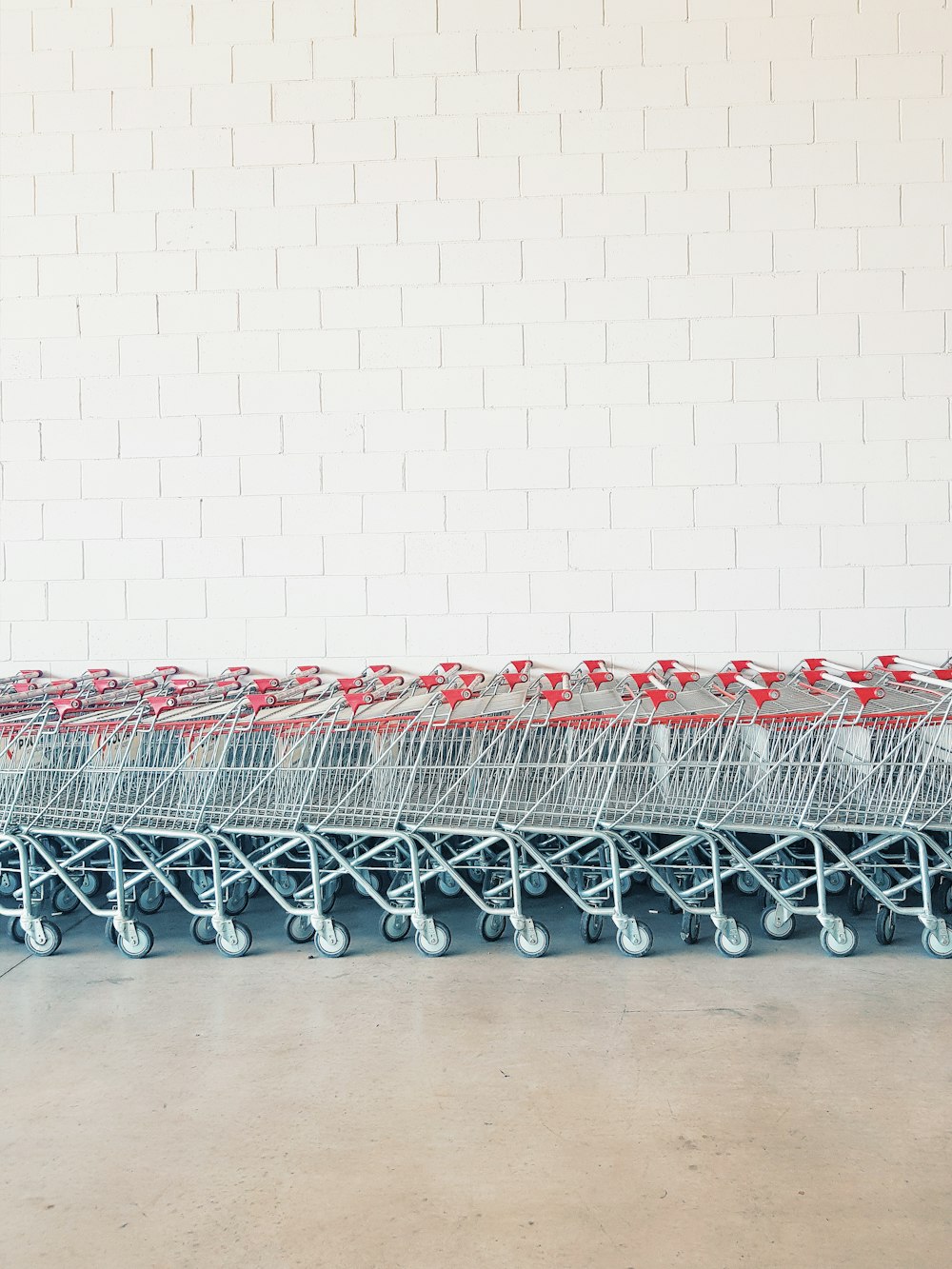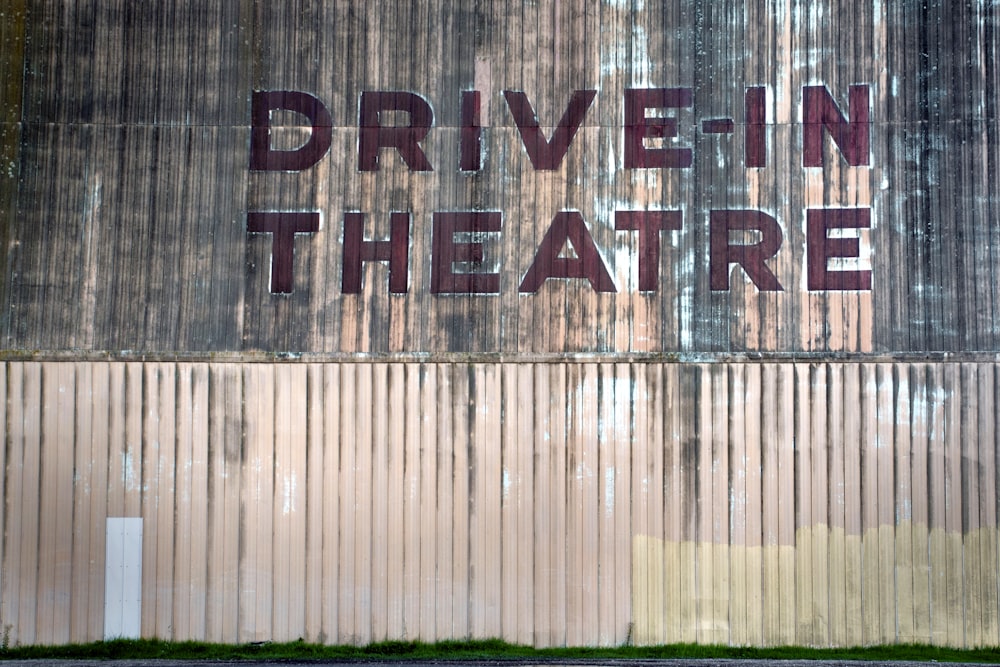Commentary by management consultant Michael Wade on Leadership, Ethics, Management, and Life
Tuesday, March 31, 2020
Into It
The Orient Express [wish I were on it]
Espresso. Breakfast. Correspondence. Reading. Exercise. Coffee.
And now some research which will be followed by more correspondence, exercise, coffee, and reading.
Busy is Not Enough

What you're busy with may be very different from what is getting done.
And what is getting done may be very different from what matters.
[Photo by Clay Banks at Unsplash]
Monday, March 30, 2020
Renewing Old Acquaintances
A few of the old acquaintances I am renewing during The Period of Social Isolation:
Herman Melville, Mark Twain, Viktor Frankl, Gabriel Garcia Marquez, Peter Drucker, John Kennedy Toole, Jane Austen, Graham Greene, Malcolm Muggeridge, Paul Theroux, Frederick Buechner, Malcolm Gladwell, William Shakespeare, and Olivia Manning.
A Late Thought
I had written down a rough analysis of a client problem shortly before going to bed.
That is not my usual practice nor do I recommend it because doing so can foil sleep, but this time the thoughts had to be captured because in the morning they may have scattered.
But then, in early morning, another perspective surfaced. It didn't conflict with the others but instead gave then added strength.
It was, of course, so obvious I had not noticed it.
If you can sleep on a decision, do so.
Just Finished

Just finished watching this season on Saturday night.
Outstanding but if you've never seen the series, start with the beginning season.
[The series is about "Inspector Morse" in his early years.]
Sunday, March 29, 2020
World Review
Political Calculations ranks nations of the world for coronavirus cases.
Less is More
A simple photo at Cultural Offering shows how J.D. Salinger set the gold standard for celebrity lifestyle.
Find Something Beautiful Today

[Photo by Leonard Cotte at Unsplash]
Saturday, March 28, 2020
First Paragraph
The sun was only half as hot as he had known sun to be, but it was hot enough to keep him confused and dizzy. He was very weak. He had not eaten for seventy-two hours, or taken water for forty-eight.
- From Nothing to Lose (A Jack Reacher Novel) by Lee Child
- From Nothing to Lose (A Jack Reacher Novel) by Lee Child
Coronavirus Resource Center
Johns Hopkins University Medical School continues to update this site.
Becoming a Professional Zoomer
Once again, FutureLawyer comes to the rescue.
Due to the evil virus and the consequent need for distant one-on-one coaching, I am preparing to Zoom.
Sage Advice
FutureLawyer has been on a roll with advice on working at home and maintaining a practice during the coronavirus.
Conversation with the Dog
"Oh, you came in for a little visit. Wait, you want something? I gave you a treat around thirty minutes ago. Do you want to go outside? I mean do you really want to go outside? This isn't another one of your scams where I walk into the other room and open the back door and then you stare at me and look at the kitchen? Okay, hold on. I'll be with you in a minute."
[Sucker.]
First Paragraph
No one had any doubt that the bombers would come. Defense planning began well before the war, though the planners had no specific threat in mind. Europe was Europe. If past experience was any sort of guide, a war could break out anywhere, anytime. Britain's military leaders saw the world through the lens of the empire's experience in the previous war, the Great War, with its mass slaughter of soldiers and civilians alike and the first systematic air raids of history, conducted over England and Scotland using bombs dropped from German zeppelins. The first of these occurred on the night of January 19, 1915, and was followed by more than fifty others, during which giant dirigibles drifting quietly over the English landscape dropped 162 tons of bombs that killed 557 people.
- From The Splendid and the Vile: A Saga of Churchill, Family, and Defiance During the Blitz by Erik Larson
- From The Splendid and the Vile: A Saga of Churchill, Family, and Defiance During the Blitz by Erik Larson
Friday, March 27, 2020
Cancel Culture
The New Criterion: Woody Allen and the Hachette Book Group.
[Note: I am currently reading - and so far enjoying - the book in its Kindle version. The decision by Hachette to withdraw from publication prompted me to buy it.]
[Note: I am currently reading - and so far enjoying - the book in its Kindle version. The decision by Hachette to withdraw from publication prompted me to buy it.]
A Treatment from France?

For two reasons, I hope that the professor is right, bearing in mind that he has not yet been proved wrong, either. The more important reason is that, if he is right, his treatment regime offers hope that the epidemic will be cut short. The second, more trivial, is that I would like so colorful (if arrogant) a man to prove justified in his self-confidence and to cause embarrassment to the establishment.
Read the rest of Theodore Dalrymple in City Journal.
[Photo by Hush Naidoo at Unsplash]
Risk Stratification
Althouse on Cuomo, Trump, coronavirus, and thinking aloud.
Top Three Television Show Themes
This is what happens when people are sitting at home. They think up weird contests.
Well, who can resist? There has been some argument on Twitter about the top three musical themes for television programs. It is difficult, nay impossible, to beat this list:
Second Place
Third Place
Well, who can resist? There has been some argument on Twitter about the top three musical themes for television programs. It is difficult, nay impossible, to beat this list:
1st Place
Second Place
Third Place
A Partial First Paragraph
Like Holden, I don't feel like going into all that David Copperfield kind of crap, although in my case, a little about my parents you may find more interesting than reading about me. Like my father, born in Brooklyn when it was all farms, ball boy for the early Brooklyn Dodgers, a pool hustler, a bookmaker, a small man but a tough Jew in fancy shirts with slicked-back patent leather hair a la George Raft. No high school, the Navy at sixteen, on a firing squad in France when they killed an American sailor for raping a local girl. A medal-winning marksman, always loved pulling a trigger and carried a pistol till the day he died with a full head of silver hair and twenty-twenty eyesight at a hundred. One night during World War I his boat got hit by a shell somewhere off the coast in the icy waters of Europe. It sank. Everyone drowned except for three guys who made the miles-long swim to shore. He was one of the three that could handle the Atlantic. But that's how close I came to never being born.
- From Apropos of Nothing by Woody Allen
- From Apropos of Nothing by Woody Allen
Thursday, March 26, 2020
The Sacrifice of the Celebrities
Althouse and Titania McGrath have observations.
Coronavirus Resource Center
Johns Hopkins University Medical School continues to update this site.
A Grand Story for Strange Times

I think I was a better person by the end of this novel.
Jayber Crow is beautifully written with great characters and great values.
An extraordinary story of a barber in a small town.
[I know that sounds boring but it isn't.]
The Power of Solitude
Solitude is often portrayed as a negative time filled with gloomy thoughts, envy, regret, resentment, and self-reproach.
But it can be a glorious occasion for growth if embraced with gratitude for good times and spiced with fresh analysis and an appreciation of small things.
I think the key to many of its benefits is vigorous curiosity.
How does this place work? Which word would be better in this paragraph? How did that author make such a minor character so memorable? Why did the composer choose that particular note? What tipped the scales at that committee meeting? What was valued? What was overlooked? Could this problem have been spotted earlier? How would a person of significant achievement regard this matter? Do the assumptions withstand scrutiny? What do I need to stop doing? Am I failing to help someone?
Here's a related point: A lack of gratitude and a lack of curiosity are two of the most dangerous gaps in life.
Fill them in and life changes for the better.
Playing with Words

The Paris Review: Adrienne Raphel on the brief history of word games.
[Photo by Brett Jordan at Unsplash]
Returning Safely to Work

Paul Romer and Brandon Fuller discuss a two-pronged strategy for getting people back to work.
[Photo by Dan Gold at Unsplash]
Wednesday, March 25, 2020
Calculations
Political Calculations is visualizing the progression of COVID-19 in the United States.
First Paragraph
The names of Lenin, Stalin, and Hitler will forever be linked to the tragic course of European history in the first half of the twentieth century. Only weeks after the Russian Revolution the Bolsheviks created secret police forces far more brutal than any that had existed under the tsar. The Nazis followed suit and were no sooner in power than they initiated the dreaded Gestapo. Under both regimes millions of people were incarcerated in concentration camps where they were tortured and frequently worked to death. The Nazis invented camps equipped for the industrial killing of millions of Jewish women, men, and children on the basis of supposed racial criteria.
- From Lenin, Stalin, and Hitler: The Age of Social Catastrophe by Robert Gellately
- From Lenin, Stalin, and Hitler: The Age of Social Catastrophe by Robert Gellately
China and Northern Italy
The American Spectator: Chinese labor, coronavirus, and northern Italy.
If we had a serious press corps, we might be hearing far more about this.
[HT: A Large Regular]
If we had a serious press corps, we might be hearing far more about this.
[HT: A Large Regular]
Stuff
We encounter a whole lot of stuff in the workplace that changes nothing for the better or the worse other than the fact that it consumes time that could have been devoted to worthier pursuits.
It's just stuff. Programs that were doomed from the beginning. Meetings that should have never been held. Relationships that are beyond repair. Prospects that have evaporated. Difficult people who are still trying to exorcise the ghosts of old grievances.
Stuff.
And the sooner we put a sizable distance between ourselves and stuff, the better.
True

The future comes one day at a time.
- Dean Acheson
[Photo by Nick Fewings at Unsplash]
Tuesday, March 24, 2020
Coronavirus Resource Center
Johns Hopkins University Medical School continues to update this site.
Beyond the Quarantine: Getting Back to Work

City Journal: Arpit Gupta on how Americans can safely return to work.
[Photo by Anna Sullivan at Unsplash]
Breakfast with Thucydides
Each morning with breakfast, I'm reading a small portion of the history of the great war between Athens and Sparta. The classic history by Thucydides is much more than that, of course, and contains insights into society and people.
Not a bad way to start the day.
Reverse Hypocrisy
Another post I wrote in 2014:
Reverse hypocrisy: A form of hypocrisy where the person excuses lax or irresponsible conduct by others - conduct which fosters failure - but personally follows much higher standards. Some examples:
- "I'll make excuses for your children using foul language or not doing homework. Of course, I wouldn't tolerate it with my own children."
- "I'll applaud Jack or Mary's marginal performance but I'd never regard it as even close to acceptable in my own case."
This hypocrisy would be less harmful if its practitioners were not influential. Consider the film star or famous author who privately possesses a strong work ethic but whose public statements portray achievement as something produced by a magic bean called Inspiration. Consider the chief executives who grossly understate what it really takes to get to the top job. [It's as if their aim is to thin out the competition.]
Remedy: Preach what you practice.
Remedy: Preach what you practice.
While in Quarantine
There will be plenty of time to perfect your ferret-legging skills.
Monday, March 23, 2020
Coronavirus Resource Center
Johns Hopkins University Medical School continues to update this site.
Monday Morning Advice for Leaders
I wrote this in 2014.
- If you are not going to be pleasant then you'd better be ultra-competent.
- If you think you have all of the answers that is a sign that you do not have all of the answers.
- Before you hammer a change through the organization, use the hammer on your ego and listen to more people.
- Beware of simple explanations for human behavior. Beware of the complicated ones too.
- At least once a week, have coffee or lunch with someone who is not in your usual circle.
- Contacts are nice, but relationships are better.
- Be forgiving but also be alert.
- People need to be studied in order to be understood and the knowledge which is obtained may have a short expiration date.
- Evaluate your work for its effectiveness today and for how you are likely to regard it ten years from now.
- You can focus on some subjects only by not focusing on them.
- Organizations don't make decisions. People do.
- A major decision that may be slept on, should be slept on.
- Keep track of your organization's history. It is not a "nice to know' but a "need to know."
If You are Going to Hole Up

Here are trailers for the first seasons of several outstanding programs:
[Photo by Matt Seymour at Unsplash]
Sunday, March 22, 2020
As the Crisis Hits the States

City Journal: Steven Malanga examines what the coronavirus crisis will do to state budgets.
It's going to be rough.
[Photo by REVOLT at Unsplash]
Find Something Beautiful Today

[Photo by Spencer Davis at Unsplash]
Saturday, March 21, 2020
Quote of the Day
When I hear artists or authors making fun of businessmen I think of a regiment in which the band makes fun of the cooks.
- Anonymous
- Anonymous
Opening Lines of Beowulf in Old English
I recommend this version:

Grace and Style
Cultural Offering: It's time to tour Duncan Fallowell's library.
Where It Began
I hold Xi Jinping guilty of starting the coronavirus pandemic, which began in the Chinese city of Wuhan and has now caused thousands of deaths around the world and an economic recession that will ravage all of us for years. My accusation is well-founded and well documented. Early last December, a young doctor at a Wuhan hospital discovered the first case of illness caused by a heretofore unknown virus. He immediately established the link with an earlier epidemic that had begun in the same place and under the same circumstances, in 2002–2003: SARS, a viral pneumonia. The doctor, Li Wenliang, 37 years old, who died in February from exposure to the patients whom he cared for, had immediately posted his diagnosis on the hospital’s internal website in order to inform his colleagues. He was called before a disciplinary council of the local Communist Party and forced to repent and confess, in writing, that he had spread rumors harmful to the glory of the Party. A month later—a month too late—after further suppressing evidence from brave medical professionals, the Party recognized the explosive nature of the epidemic, which could have been confined to Wuhan but was now spreading throughout China, and then the world.
Read the rest of the essay by Guy Sorman in City Journal.
Read the rest of the essay by Guy Sorman in City Journal.
Friday, March 20, 2020
No Mention of Zombie Attacks

Althouse points to a New York Times article by Nicholas Kristof giving the best and the worst scenarios.
[Photo by Nathan Wright at Unsplash]
Let's Go to the Numbers
Remember these?
Check it out.
Coronavirus Resource Center
Johns Hopkins University Medical School continues to update this site.
First Paragraph
In 2012, Ryan O'Neill, the head of the customer experience group for the travel website Expedia, had been sifting through some data from the company's call center. One number he uncovered was so farfetched as to be almost unbelievable. For every 100 customers who booked travel on Expedia - reserving flight or hotel rooms or rental cars - 58 of them placed a call afterward for help.
- From Upstream: The Quest to Solve Problems Before They Happen by Dan Heath
[Execupundit note: I just started reading this very interesting book but won't leave you hanging with this teaser of a first paragraph. The main reason for the calls was to get a copy of the itinerary.]
- From Upstream: The Quest to Solve Problems Before They Happen by Dan Heath
[Execupundit note: I just started reading this very interesting book but won't leave you hanging with this teaser of a first paragraph. The main reason for the calls was to get a copy of the itinerary.]
Let's Pull Together

When the nation is in immediate danger, you back the president.
Sort out the flubs later. There will be plenty of them. There always are.
After all, we're still analyzing the mistakes made prior to Pearl Harbor.
But also be willing to give credit where credit is due.
The initial assessments are notoriously inaccurate. Early reports are early reports, not final words, and decisions are made with incomplete information because you don't have time to spare. Events don't wait for you.
And while all of this is going on, the press reports will omit key items and perspectives.
Every press report I've seen on a subject I have known very well has caused me to shudder.
There are also organizational challenges. The real world isn't like action movies where complicated plans unfold with the precision of a Swiss watch.
Organizations are inherently wasteful and sloppy. Things get overlooked. Departments bounce into one another. Information isn't shared. People get tired. People act when they should talk and they talk when they should act. Too many people want to carry the ball. Some - can you believe it? - even have ulterior motives.
I have dealt with a lot of organizations in my career. Even the best can blunder but they have a habit of blundering into success.
So let's set aside some time later to moan and groan and analyze.
But not now. The midst of a crisis is not a great time for divisiveness.
To borrow a line from Lincoln, one war at a time.
Let's all pull together and beat this thing.
[Photo by Max Sulik at Unsplash]
Thursday, March 19, 2020
The Show Must Go On
Las Vegas Review-Journal notes the innovative coronavirus-free approach of Little Darlings, a strip club.
Coronavirus Resource Center
Johns Hopkins University Medical School continues to update this site.
Costco Adapts and Rises

This article in The Motley Fool notes how Costco has changed its store protocols to handle waves of customers during the coronavirus crisis.
From what my wife has told me, they're succeeding.
She went to a Costco in Phoenix yesterday. I expected her to return ranting but instead she came back raving about how well-organized the store was and how much attention was given to reducing the potential for any transmission of the coronavirus.
She noted that the organization started in the parking area, continued through the entrance screening, and culminated in a great experience throughout the store and during the check-out.
She was also impressed by how courteous and attentive the staff members were. They went beyond their usual high standard to turn a potentially stressful experience into a very pleasant one.
One other point she stressed: How nice the customers were.
We are rising to the occasion.
And so is Costco.
[Photo by Gabrielle Ribeiro at Unsplash]
Breakfast with Thucydides
Found this morning while sipping espresso and eating an English muffin with a light spread of smooth peanut butter:
"For instance, it is evident that the country now called Hellas had in ancient times no settled population: on the contrary, migrations were of frequent occurrence, the several tribes readily abandoning their homes under the pressure of superior numbers. Without commerce, without freedom of communication either by land or sea, cultivating no more of their territory than the exigences of life required, destitute of capital, never planting their land (for they could not tell when an invader might not come and take it all away, and when he did come they had no walls to stop him), thinking that the necessities of daily sustenance could be supplied at one place as well as another, they cared little for shifting their habitation, and consequently neither built large cities nor attained to any other form of greatness."
- From The History of the Peloponnesian War by Thucydides
Middle of the Night

I was up in the middle of the night.
I'd worked on a project shortly before going to bed and that is usually a mistake since thoughts are still bubbling about when I shut my eyes.
Fortunately, it is a good project, even an enjoyable one, and so the thoughts were welcome.
But not at 2 a.m.
So I picked up the latest Hilary Mantel novel and read about Thomas Cromwell's machinations during the reign of Henry VIII.
Great stuff. Her portrayal of Cromwell is one of the best views of any character in literature.
When I set it aside around thirty minutes later, I had also reached a decision on how to proceed with the project. Odd, but as with many things in life, sometimes you head north in order to go south.
Unlike in Cromwell's day, there will be no beheading.
[Photo by Jouwen Wang at Unsplash]
Wednesday, March 18, 2020
Little Villages
Most of us live in little villages, no matter how large the city that surrounds us.
You know what I mean. There are the local grocery, drug, and book stores, the places to walk, the park, the restaurants, fire stations, libraries, schools, and, of course, the immediate neighborhoods.
Beyond those is the rest of the city.
And when times are good and when times are strange, where do you find us?
In our village.
Coronavirus Resource Center
Johns Hopkins University Medical School continues to update this site.
Live Long and Prosper

City Journal: John Tierney asks whether, after the coronavirus, we should largely abandon the handshake.
[Photo by Cytonn Photography at Unsplash]
Subscribe to:
Posts (Atom)

























